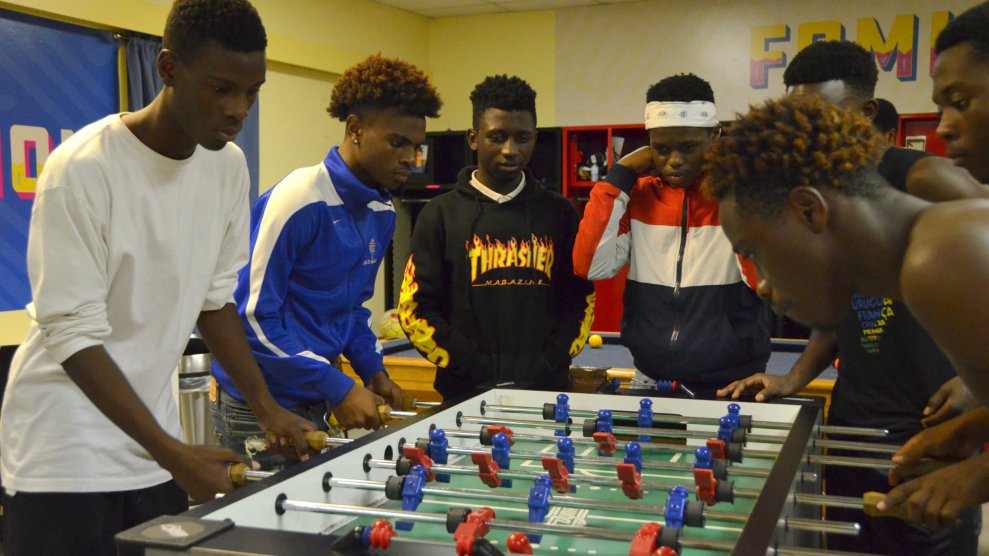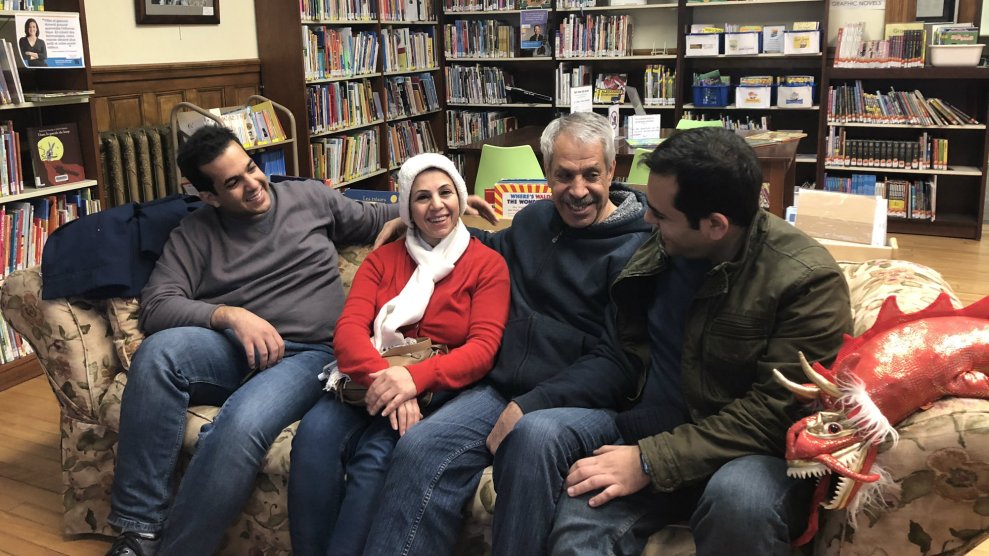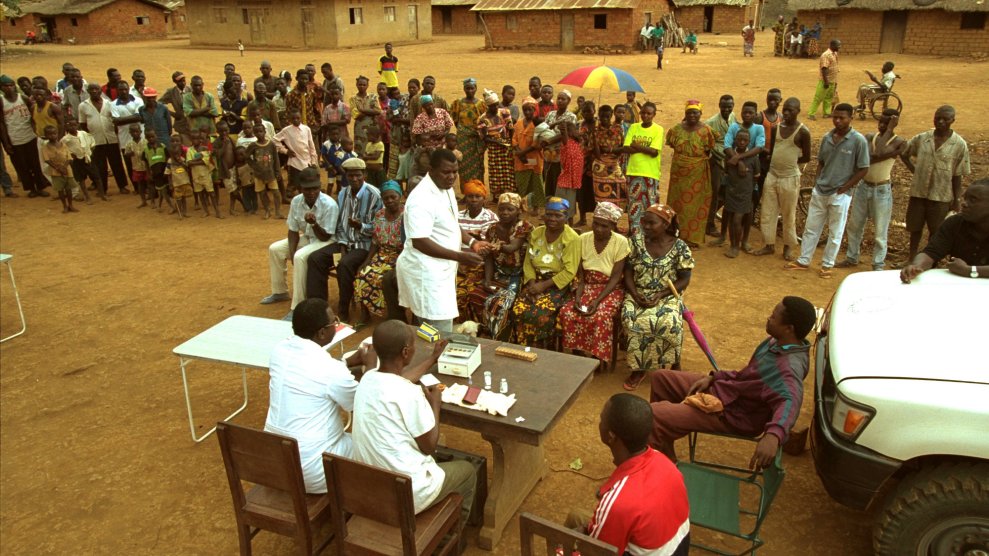
The reVision soccer team relaxing with foosballMonica Rhor/USA Today
Umoja ni nguvu. Unity is strength.
For a soccer team of African refugees, this Swahili phrase has been a powerful rallying cry. Many of the players made their way to Houston, Texas, after years spent in refugee camps, knowing very little English except for a few phrases, such as “How are you?” and “Where is the food?”
Although adapting to their new lives was difficult, the players have found familiarity and friendship through their soccer team, the reVision Football Club.
“They are like my brothers,” Iluta Shabani, a high school honor student who grew up in a refugee camp in Tanzania, said of his teammates. “When I don’t have something, they give it to me. When they don’t have, I give it to them.”
The players worry about President Donald Trump’s anti-immigrant rhetoric, but even in the face of racial epithets from opposing players or spectators, they’ve kept going—even rising up to defeat a former state champion last month.
Charles Rotramel, who runs a nonprofit that sponsors the team, credits the team members for building this community. “They were looking for a safe place and found it in each other,” he told USA Today.
Welcome to Recharge, a weekly newsletter full of stories that will energize your inner hellraiser. Sign up at the bottom of the story.
- Courage, remembered. When North Carolina tried to impose a restrictive voting rights law in 2013, Rosanell Eaton fought back: In her 90s, she became the lead plaintiff in a lawsuit challenging the measure—and eventually helped strike it down. Eaton, who died Saturday, has been fighting for voting rights since 1942, the year she outwitted three white men in order to vote. Those men told Eaton she couldn’t register to vote unless she recited the preamble to the US Constitution from memory. Eaton had no problem doing so.
Said former President Barack Obama in a 2015 letter: “I am where I am today only because men and women like Rosanell Eaton refused to accept anything less than a full measure of equality.” Thanks to Mother Jones’ Ari Berman for suggesting this story. (New York Times)
- Helping the hungry. For years, renowned celebrity chef José Andrés has been helping feed kids and families in need with his nonprofit, World Central Kitchen. While the chef first began his nonprofit in response to natural disasters, he has now expanded his efforts to help families stranded on the southern border by the Trump administration. His crew has been serving about 3,000 meals a day. It’s “the human thing to do,” said the chef. Paraphrasing John Steinbeck’s The Grapes of Wrath, Andrés said: “Wherever there’s a fight so hungry people may eat, I will be there.” (Washington Post)
- The dog that waited. During California’s deadly Camp Fire, Andrea Gaylord wasn’t able to get home in time to retrieve her dog, Madison. When the evacuation order was lifted weeks later, Gaylord returned—and found the Anatolian Shepherd mix steadfastly guarding the little that remained. “You are the best dog,” she told Madison. (Washington Post)
- A feast for your eyes. An Orthodox Easter, a Korean reunion, and a flood rescue in North Carolina—check out some of the most hopeful images from 2018. (The Atlantic)
We want to hear from you! Let us know your favorite Recharge-style story and why—whether it was about someone helping others, justice prevailing, or an action that inspired you. Even better: Tell us about something you did as a result of these stories. Email me at recharge@motherjones.com or fill out the form below.


















